I mean, it’s Nevada, after all.
Pull off the road almost anywhere, get away from the highway into the dips and rolls of dust and sage, and you’ll find cartridge casings. The bright brass of little .22 long rimfires, the oddly large silver steel of 9 mm rounds, plastic shotgun rounds in any colour and any shot size, even slug, the candle-tapers of the .306 … if it goes bang, you’ll find its casing in the sand and dust, and its bullet hole (or pellet spread) in roadside signs, in abandoned couches, in spray paint cans set up like candlepin bowling pins for the gaseous flare of their tearing explosions.
Head into the restaurant at the Tonopah Station Hotel and Casino, and you’ll find a bear of an older man, white beard and red suspenders, sitting and eating breakfast pancakes, with a Bowie knife on his left hip that’s so long its tip almost reaches the floor from his chair, and on his other hip, a businesslike little blue steel Glock pistol in a fast-slip ready-holster, ready to draw fast just in case you’re going to try to horn in on his pancake syrup.
You'll also find a bear. Yes, a bear.
That’s James. He’s pretty dead. He’s been in the lobby forever. His taxidermy suggests a gutshot — or seven — beyond repair.
Head east from Tonopah on Route 6 and then north on the 376, up through Round Mountain and Carvers and Millet and the rest of the Big Smoky Valley, and you can cut over on Route 50 to Austin, NV.
This year, the highway leading through the Humbolt-Toiyabe National Forest into Austin — steep grades and tight corners — is covered in something red and sometimes chunky, something that also sometimes, weirdly, moves.
I asked about that in Austin: “This may be a stupid question, but what’s the red stuff on the road?”
The gas station clerk doesn’t blink an eye.
“That’s not a stupid question,” she said. “It’s blood.”
There is always some point in a trip where everything shifts sideways, where suddenly you’re feeling like you should have asked just one question less.
This was that time.
“Mormon cricket blood,” she clarifies. “They’re swarmin’.”
Mormon crickets are fat and stupid and useless, packed full of grease and as big as your thumb, but they win the day through dint of sheer numbers. (Leslie and I will meet up with them again later on near Gerlach, thousands upon thousands of them eating everything in sight.)
But we were talking guns here.
Still in Austin, in a restaurant named Grandma’s Livingroom, a man comes out from the back room where the pool table is, the back room where they’ve just played “Friends in Low Places” by Garth Brooks three times in a row, ragged voices singing along but only through the chorus, and he’s also got a flatblackmetal pistol on his belt.
We’re eating pizza, Leslie and I, and it’s good pizza, but I can’t help but wonder what was going through his head to make the sartorial choice that, “wow, me and the guys are going out for beers and pool in a virtually empty town, better make sure I take my gun.”
There’s Garth again: “'Cause I've got friends in low places
Where the whiskey drowns and the beer chases my blues away
And I'll be OK.”
But the man isn’t there for us.
He’s there because of the bikers. Wants to tell them that he likes their rides.
Focus on the bikers.
There are four of them. Sometimes, you look at a group of people, and you can’t help but sense that there should be one more. That someone is clearly missing.
The bikers are on big road bikes, bikes that they’ve parked in neat echelons outside the plate glass front window of Grandma’s, and they’re older, but they come in no nonsense and tough. One has a white beard with blue elastic bands wrapped tight right through it, like an aging Capt. Lou Albano has lost his Cyndi Lauper somewhere nearby. The other three have black stretchy do-rags on their heads, and they take them off, retie them, and put them back on, pulling them down tight above their ears.
No one smiles.
Hard guys.
The bearded, rubber-banded biker is the closest one to me, and he takes up most of my vision. He has broad square-cut jeans that show absolutely nothing of his backside or hips, but hang from his shoulders on suspenders. It’s somehow like a theatre curtain. Even that seems threatening.
They all shed long leather gloves, shift out themselves into chairs, settle.
Set down the mirrors of their sunglasses on the table.
They must be staying in town. We don’t know where. Not at the Lincoln. No one’s staying there anymore.
Then, the bikers are unwrapping black elastic support elastic bandages from their obviously sore wrists.
They pick up their menus, produce bifocals from inside pockets in their leather jackets, tilt their heads back to read the small print. They reach and stretch and turn in unison, like the day’s ride has compressed every single one of their vertebrae by the exact same amount.
They are — suddenly — fragile.
The man from the back room — remember him? — asks where they’re going.
Home, they say. Ten states left to go, as of right now.
They went to the Pacific Ocean together and have turned around to come back. They don’t say why.
“We’re all retired,” one biker offers to break the silence.
“I’m almost ready to retire,” the man with the gun says.
“If you can, do it,” says the tallest biker, grey moustache cut severe and vertical down both sides of his lips. “You don’t know how much time you’ve got.”
All of the bikers nod, and the man with the gun shifts and says his good-byes.
Later, out front when we leave, the biker with rubber bands in his beard is on his cell phone in front of the restaurant, walking back and forth as he talks.
His food hasn’t even come yet, the pork chops with gravy and mashed he ordered.
“I lost my credit card,” he says into his phone. “Not sure where. Had it gassing up this afternoon. Don’t know if anyone’s used it.”
He stops talking, listening to a tinny voice I can barely hear leaking from his phone.
Things little, things big.
Things everyday, things final.
Everything all too familiar.
Maybe you start the day tomorrow.
Truly, you don’t know.

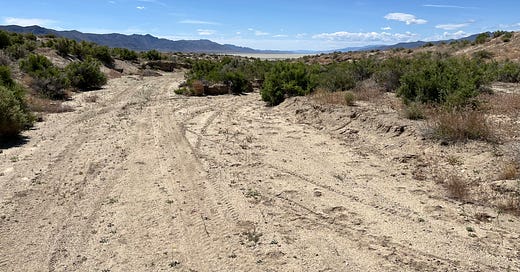




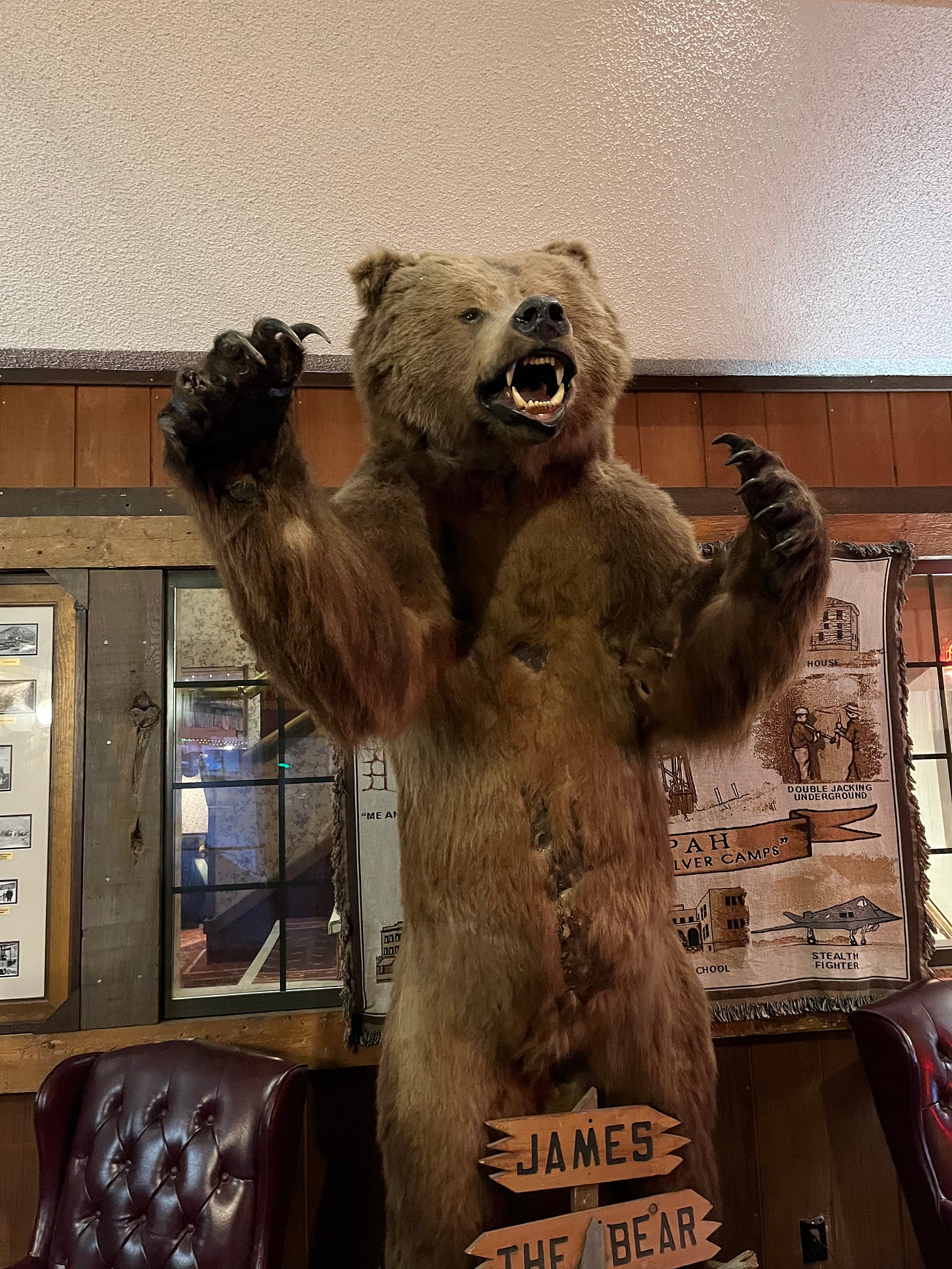
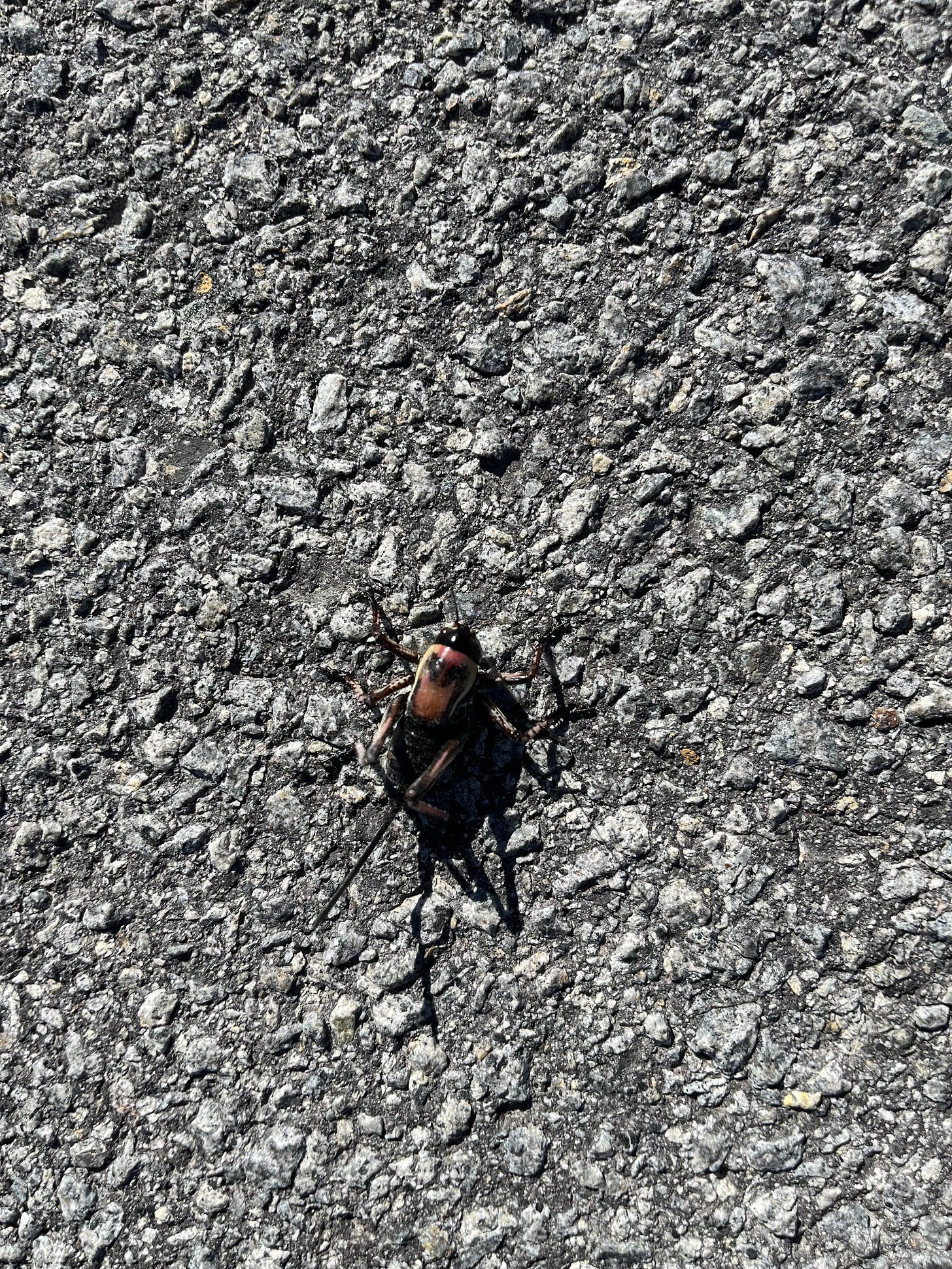
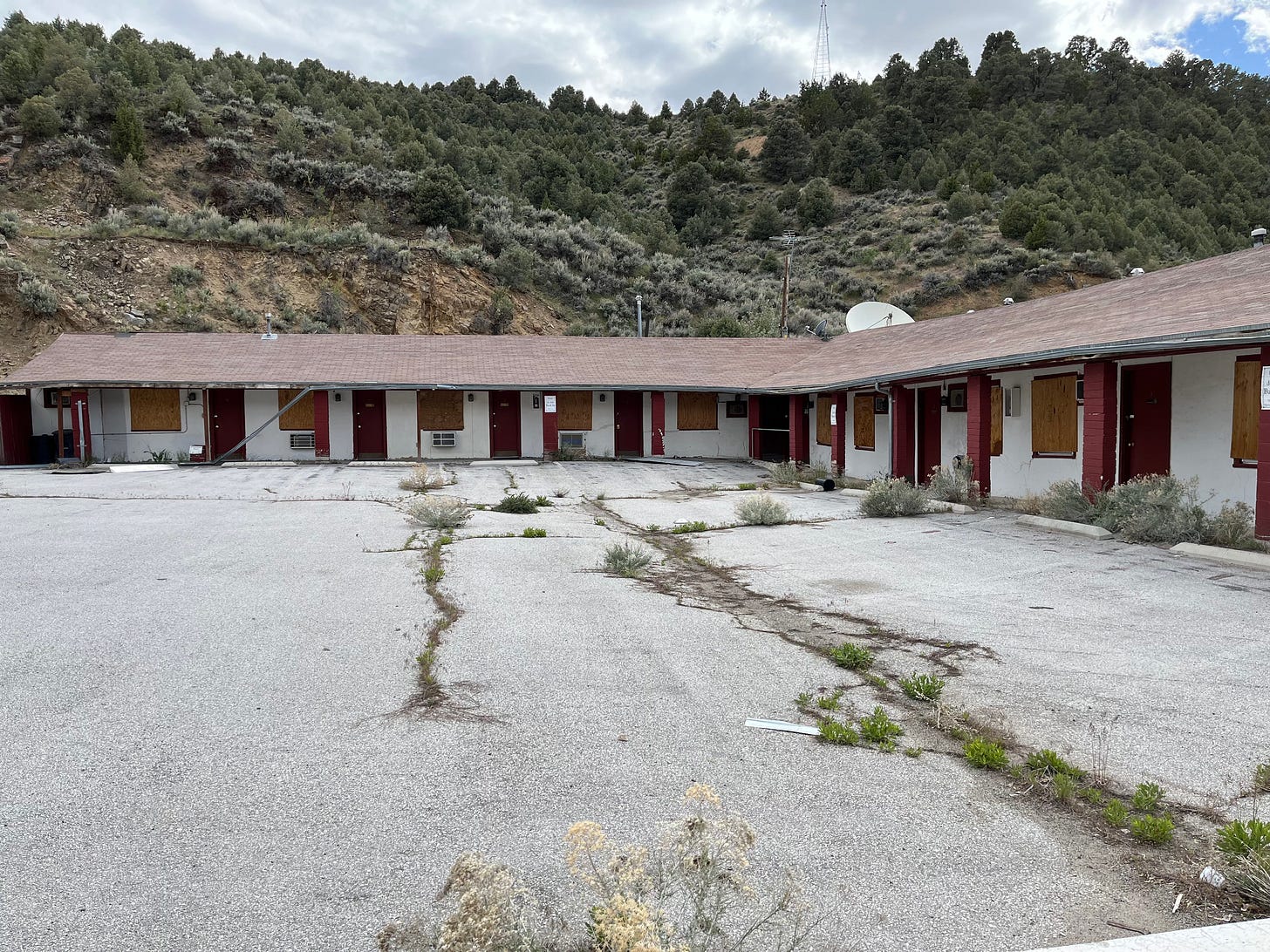
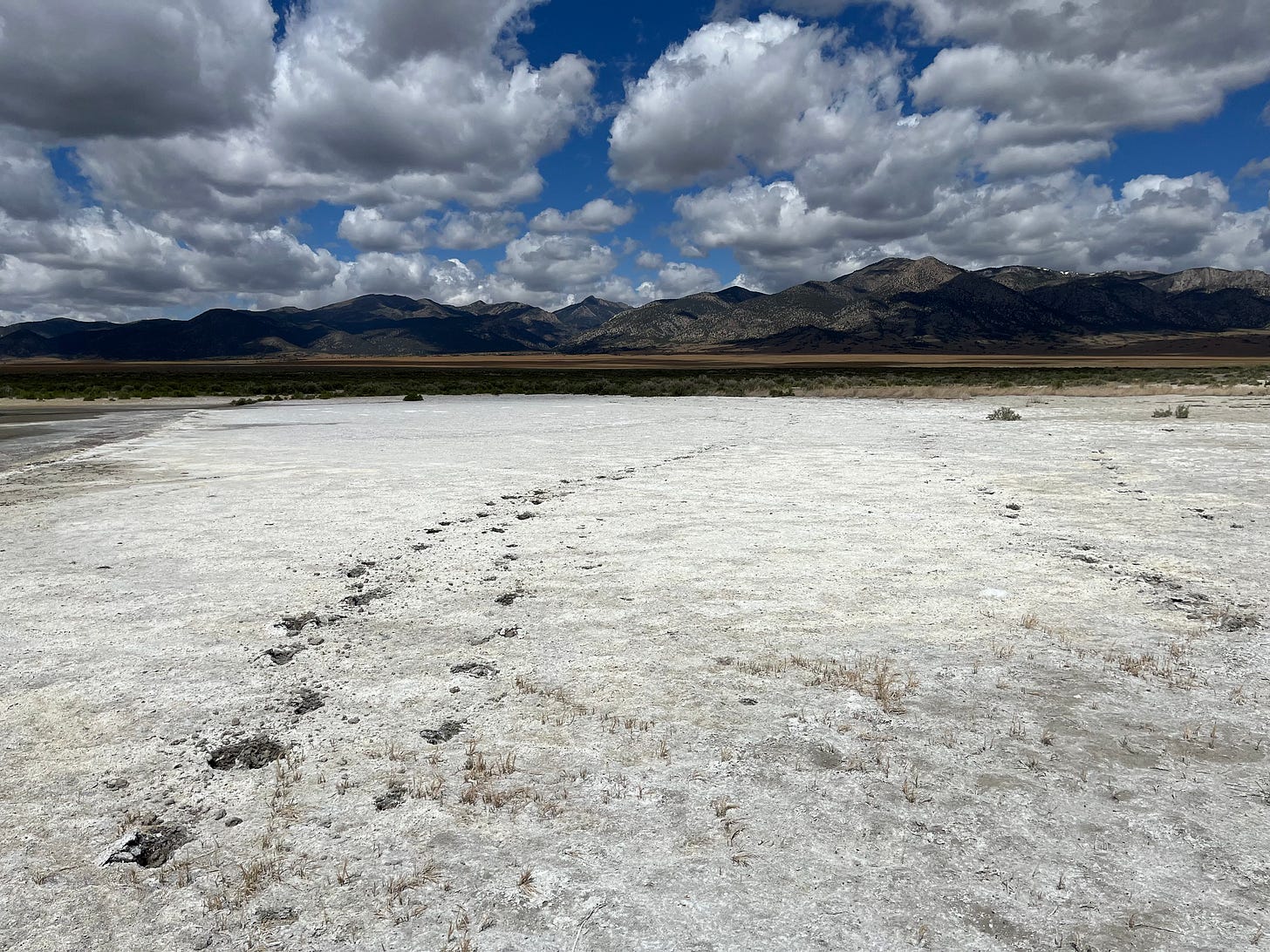
Thanks Rob - how are you doing?
Good piece, Russell. Tight and bright.